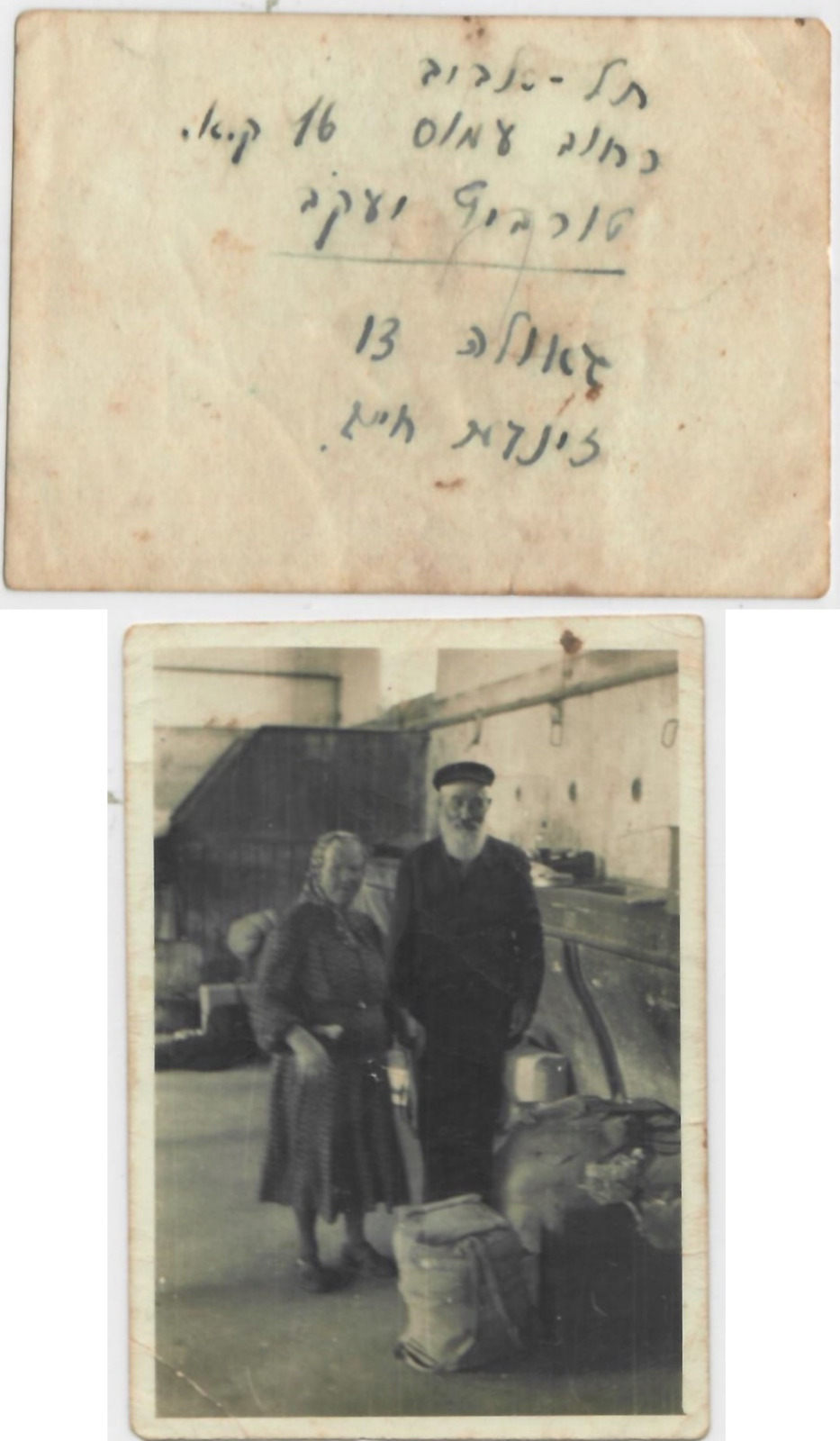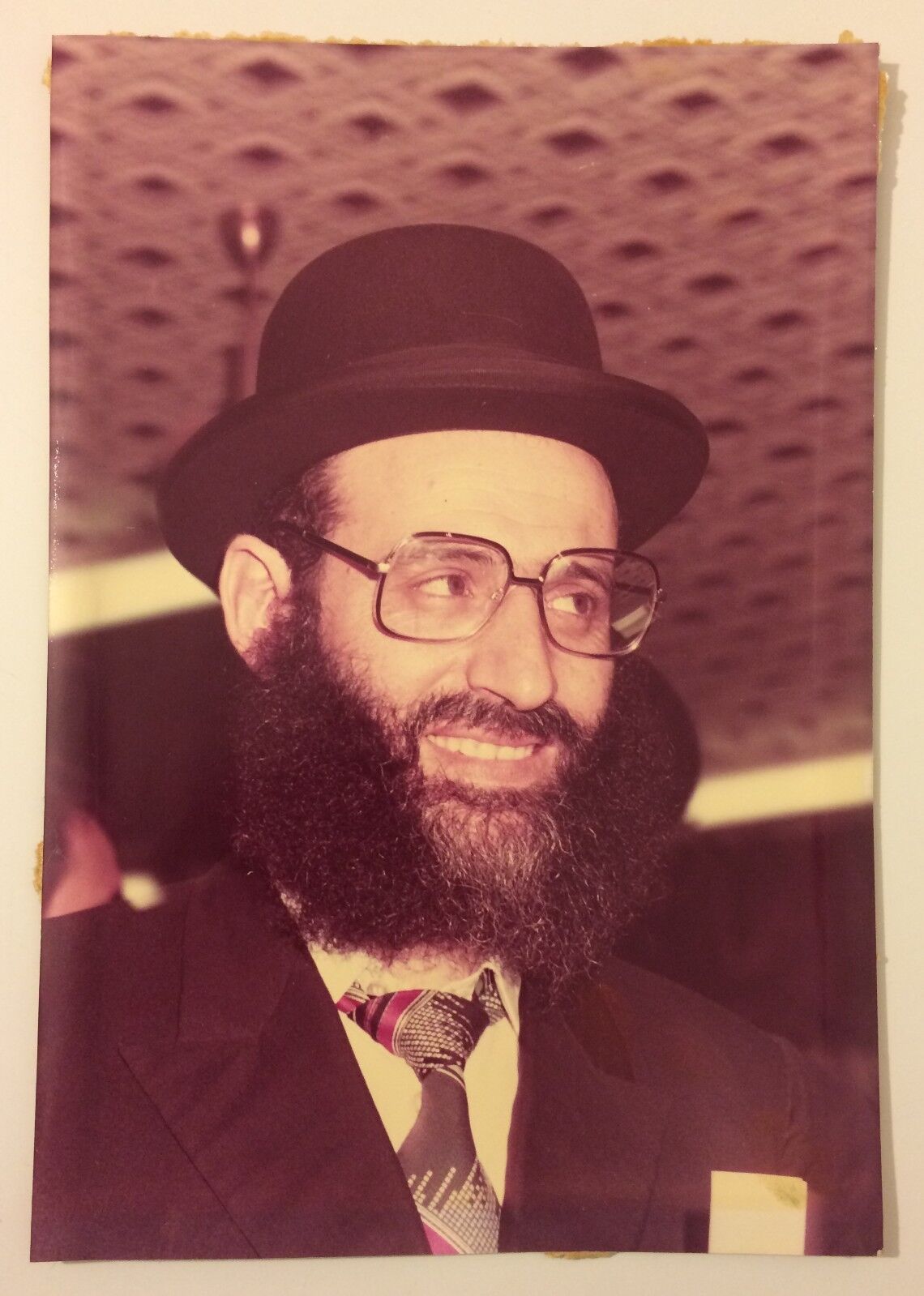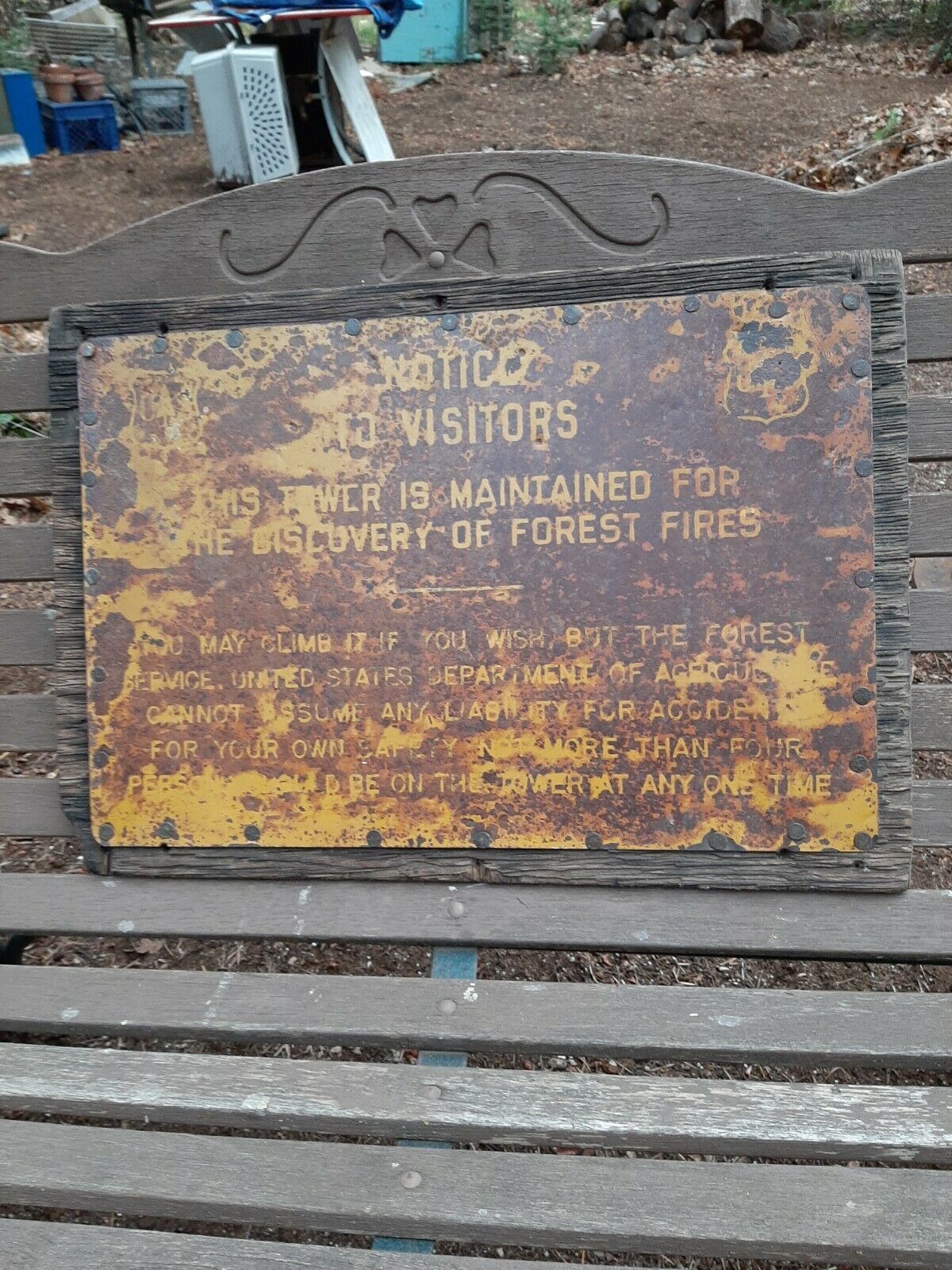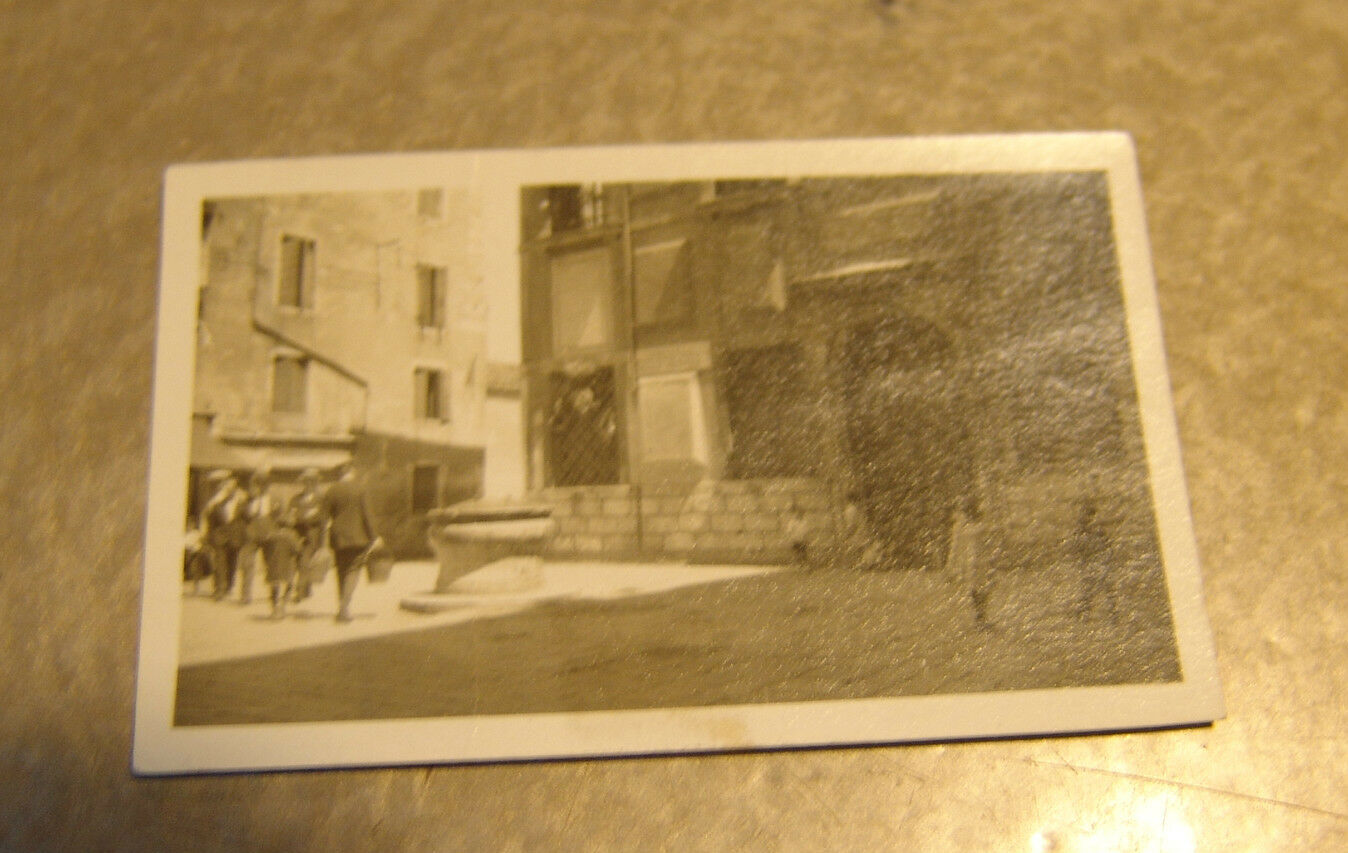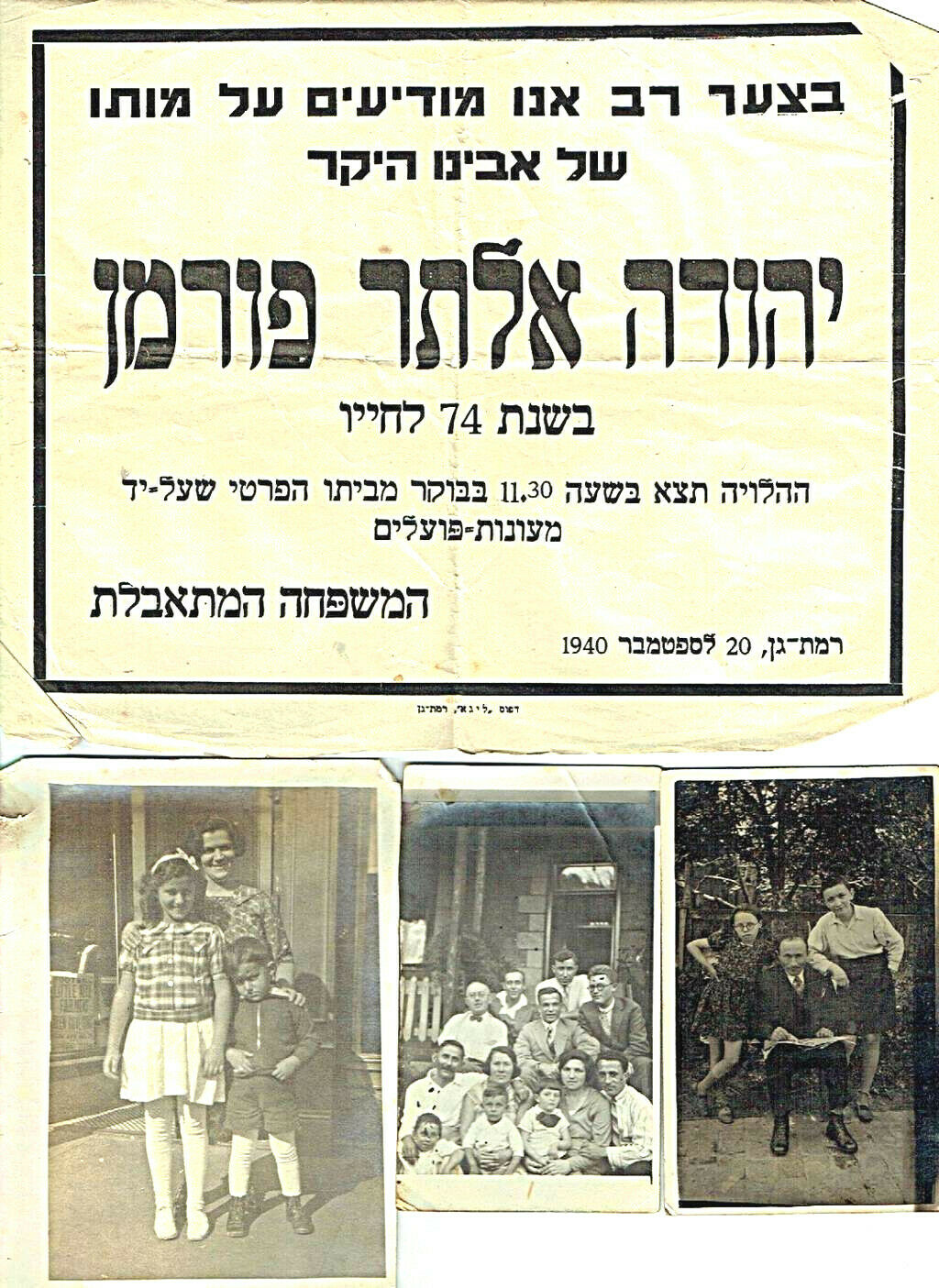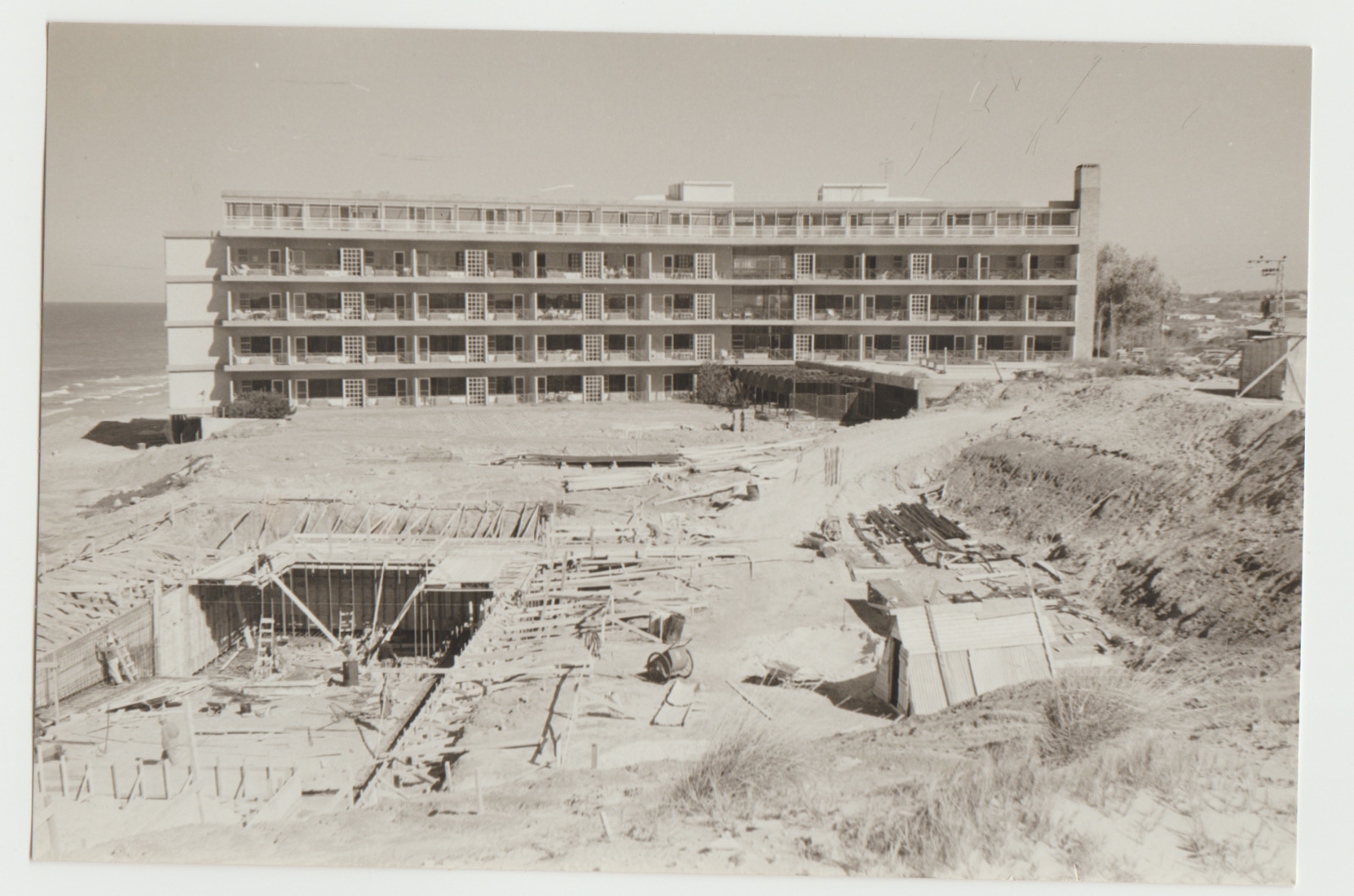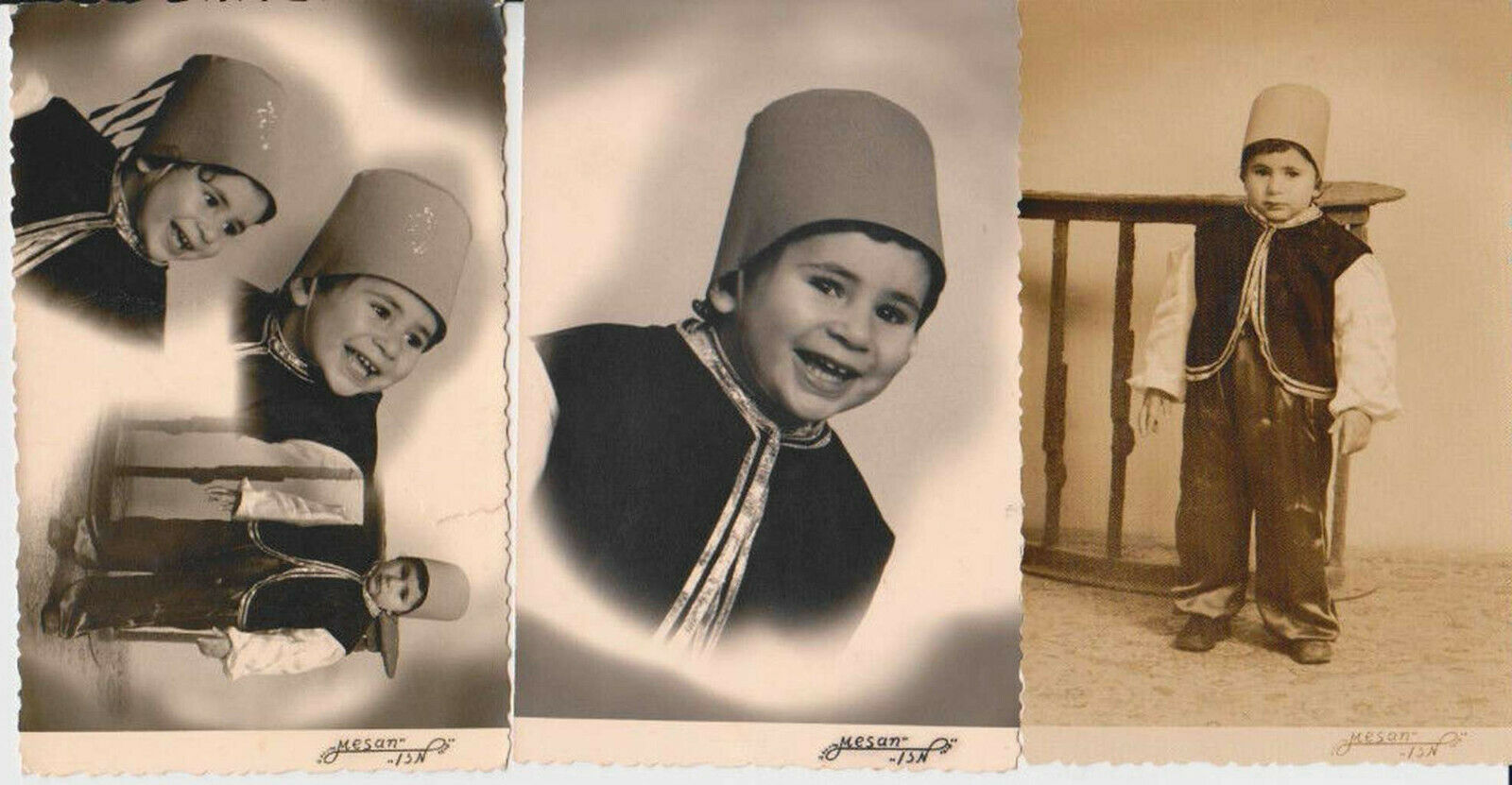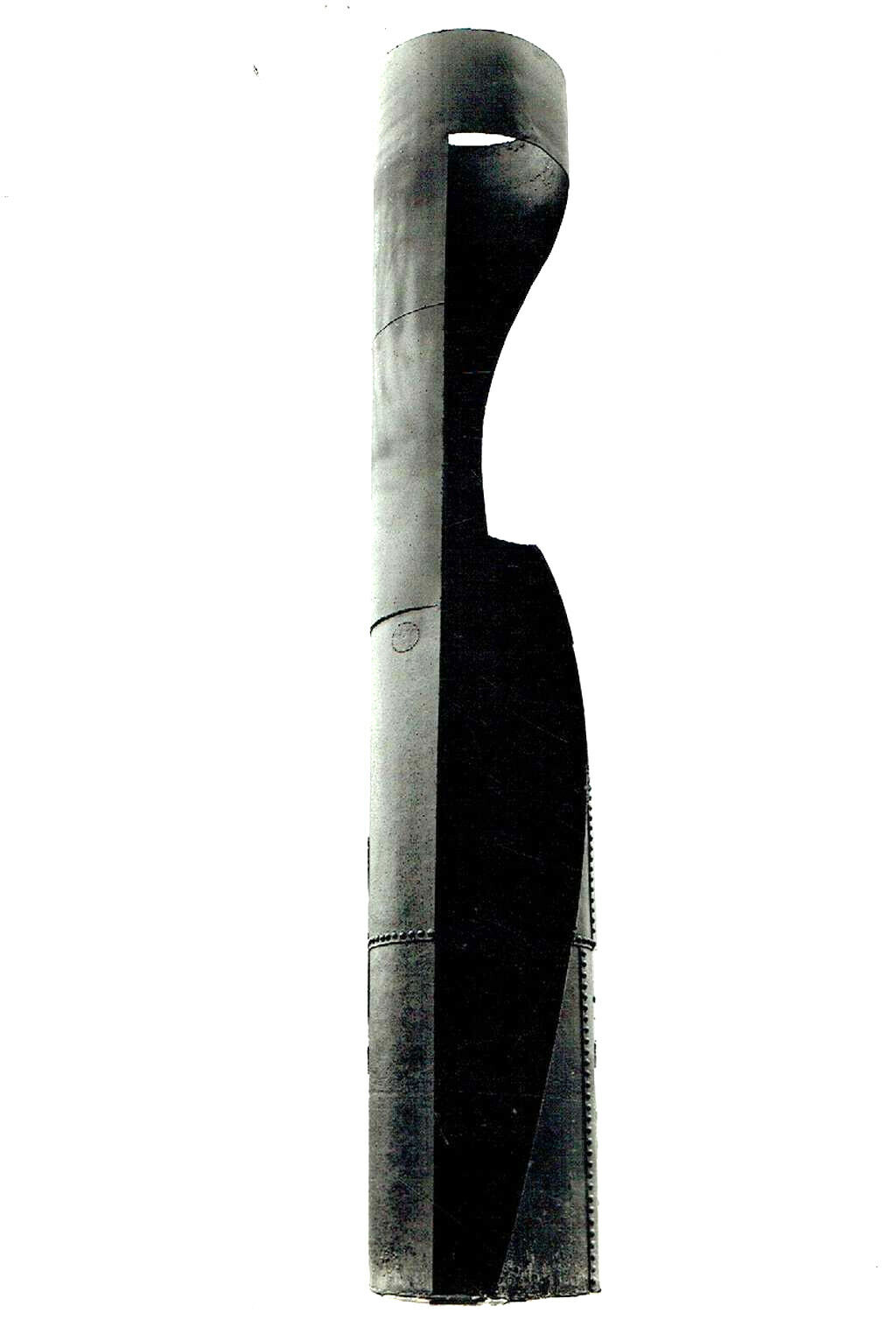-40%
1959 Piano CHOPIN RECITAL POSTER Israel BRAILOWSKY Hebrew JEWISH PIANIST Ukraine
$ 60.72
- Description
- Size Guide
Description
DESCRIPTION:
Up for auction is an extremely rare almost 65 years old RECITAL POSTER announcing and advertising the upcoming ONLY PIANO RECITAL - ALL CHOPIN PROGRAM performance in ISRAEL of the renowned JEWISH pianist of UKRAINIAN - UKRAINE descent , The child progidy ALEXANDER BRAILOWSKY . The ONLY PIANO RECITAL - ALL CHOPIN PROGRAMME took place in 1959 in ISRAEL. BRAILOWSKY was a guest of the IPO
. Size a
round 27 x 19 " . Hebrew & English. Very good condition . ( Pls look at scan for accurate AS IS images ) Will be sent inside a protective rigid sealed tube .
PAYMENTS
: Payment method accepted : Paypal
&
All credit cards
.
SHIPPMENT
:SHIPP worldwide via registered airmail is $ 25 .
Will be sent inside a protective rigid sealed tube
.
Will be sent around 5 days after payment .
Alexander Brailowsky (16 February 1896 – 25 April 1976) was a Russian-born French pianist who specialised in the works of Frédéric Chopin. He was a leading concert pianist in the years between the two World Wars. Contents 1 Early life 2 Career 3 Death 4 Technique 5 Selected recordings 6 References 7 External links Early life[edit] Brailowsky was born in Kiev, then part of the Russian Empire, to a Jewish family, and as a boy, he studied piano with his father, a professional pianist. When he was 8, he studied in Kiev with Vladimir Puchalsky, a pupil of Theodor Leschetizky. At the age of 18, he attended Kiev Conservatory, graduating with a gold medal in 1911. He went on to study with Leschetizky in Vienna until 1914, then with Ferruccio Busoni in Zürich, and finally with Francis Planté in Paris. He became a French citizen in 1926. Career[edit] Brailowsky made his concert debut in Paris in 1919. Brailowsky programmed all 160 piano pieces by Frédéric Chopin for playing in a series of six concerts. In 1924, he gave a recital in Paris of the complete cycle of the works of Chopin, the first in history, using the composer's own piano for part of the recital. He then went on to present a further thirty cycles of Chopin's music in Paris, Brussels, Zurich, Mexico City, Buenos Aires and Montevideo. A highly successful world tour followed.[1] Brailowsky's American debut was at Aeolian Hall in New York City in 1924. He toured the United States in 1936. During a series of nineteen recitals in Buenos Aires, he never repeated a single work. During World War II, he gave recitals for the USO. In 1960, he played the Chopin cycle again in Paris, and in Brussels in honor of the 150th anniversary of Chopin's birth. Between 1925 and 1930 he recorded at least twenty three works for the Ampico reproducing pianos, preserving his earliest recorded legacy in this medium. Brailowsky's first audio recordings were produced in Berlin from 1928 to 1934 and released on 78 rpm discs. In 1938, he recorded in London for HMV. Later discs were produced for RCA Victor and, in the 1960s, for CBS. Besides his huge output of Chopin, his repertoire also included Rachmaninoff, Saint-Saëns, Liszt, Debussy and others. Death[edit] Brailowsky died in New York City at the age of 80 from complications brought on by pneumonia and was survived by his wife Felicia Brailowsky. He and his wife are buried on the Mount Judah Cemetery in Ridgewood, Queens.[2][3][4] Technique[edit] Brailowsky said that the technique used to play Chopin's music should be "fluent, fluid, delicate, airy, and capable of great variety of color." Selected recordings[edit] Chopin: The Fourteen Waltzes (Columbia MS-6228) Chopin: The Complete Mazurkas Vol. 1 (Columbia) Chopin: The Complete Mazurkas Vol. 2 (Columbia) A Chopin Recital (Columbia MS-6569) Chopin Nocturnes Vol. 1 Chopin Nocturnes Vol. 2 Chopin Polonaises (Columbia) Chopin: The 24 Preludes (Columbia MS-6119) Chopin: Concerto No. 1 in E Minor. Op. 11 Chopin: The Complete Etudes (RCA) Chopin Concerto No. 1, Liszt: Todtentanz (Columbia) Brailowsky Plays Liszt (RCA LM1772) Liszt: 15 Hungarian Rhapsodies Rachmaninoff Piano Concerto No. 2 (RCA) Schumann: Etudes Symphoniques (RCA) Chopin: Sonata in B Minor Op. 58 (HMV DB 3701) Chopin: Waltzes (Volume 1) *Op. 18 *Op. 34, Nos. 1, 2 and 3 *Op. 42 *Op. 64, Nos. 1, 2 and 3 (Victor Red Seal Records M863) ***** Alexander Brailowsky (Piano) Born: February 16, 1896 - Kiev Died: April 25, 1976 - New York City, New York, USA The noted Russian-born French pianist, Alexander Brailowsky, studied first with his father, a professional pianist; then continued his training at the Kiev Conservatory, graduating with a gold medal in 1911. Following advanced studies with Leschetizky in Vienna from 1911 to 1914, and Ferruccio Busoni in Zürich, he completed his training with Francis Planté in Paris. In 1919 Alexander Brailowsky made his concert debut in Paris. In 1926 he became a naturalised French citizen. He specialised in the works of Frédéric Chopin, and achieved most of his fame between the two world wars. He gave the first complete F. Chopin cycle in history in Paris in 1924, using the composer’s own piano for part of the recital. He then went on to present a further thirty recital cycles of F. Chopin’s music in cities all over the world, including in Paris, Brussels, Zürich, Mexico City, Buenos Aires and Montevideo. He made a highly successful world tour; made his American debut at Aeolian Hall in New York in November 1924; made a coast-to-coast tour of the USA in 1936; first gave the F. Chopin cycle in America during the 1937-1938 season, in 6 recitals in New York. In 1960 he played the F. Chopin cycle again in New York (and/or Paris) and Brussels in honour of the 150th anniversary of F. Chopin's birth. Although his playing by now was past its best, but none-the-less, still delivered some superb nuances and an overall mastery. He died in New York aged 80, of complications brought on by pneumonia. Alexander Brailowsky's first recordings were done in Berlin from 1928 to 1934 (78-rpm discs). In 1938 he recorded in London for HMV. Later discs were produced for RCA Victor and finally in the 1960's, for CBS. Besides his huge output of F. Chopin, he also included in his repertoire Sergei Rachmaninov, Camille Saint-Saëns, Franz Liszt, Debussy and others. Some critics have noted irregularities in Brailowsky's playing which they attribute to sloppiness and lack of practice, however his F. Chopin Waltzes are considered authoritative and have seldom been outdone since he recorded them in the 1960's. ***** ALEXANDER BRAILOWSKY (1896 - 1976) Ukranian-French pianist Alexander Brailowsky Studied with Vladimir Puchalsky. himself a pupil of Theodor Leschetizky, in his native Kiev. Puchalsky encouraged him to go to Vienna to study with Leschetizky. He subsequently worked with Ferruccio Busoni in Swizerland and with Francis Planté in Paris. Of the below recordings by Alexander Brailowsky, my favorite might be the E♭ minor polonaise by Chopin, the second Hungarian Rhapsody by Liszt, which latter shows off the pianist at the height of his powers, and the Liszt transcriptions which you will hear on the pages mentioned below. Though Alexander Brailowsky was known worldwide as a Choin speciaist often performing a series of concerts in which he played the (almost) complete works for solo piano by Chopin, my own preference when it comes to interpreting the great Polish master tends to a less virtuosic style. Still, he was one of the giants of my early days, still performing and very much in the limelight. ***** Alexander Brailowsky View record and artist details Author: Bryce Morrison Many years ago watching a French film—I forget the title—I heard one of the characters address a strange remark to another. They were discussing greatness in musical performances, a quality apparently exemplified by Rubinstein in Chopin and Brailowsky in Brahms. The strangeness was not so much in the last combination as in the mention of Brailowsky at all. Like many others I had puzzled over recordings which seemed to me the reverse of great, notably an HMV release of Chopin's F minor Concerto (2/56—nla), music which Brailowsky ''tramped through'', according to one critic, ''as if in jack-boots''. This reissue of the 1938 London recordings, on the other hand, goes a long way towards explaining Brailowsky's immense fame and stature and is an invaluable corrective. For here is enchanting evidence that for him Chopin was ''the greatest composer for the piano'' with ''more poetry, more idealism than any other''. The E flat Waltz is deliciously buoyant, the Ecossaise spun off with an irresistible brio and sparkle. True, his rubato in the Berceuse is old-fashioned and a far cry from, say, Solomon's chaste and classic restraint in his legendary performance (recently reissued on Testament (CD) SBT1030—to be reviewed later), yet such is his charm and elan, both there and in the B minor Sonata, that one is invariably won over. The Scherzo from the latter is given with a comically gruff humour, the Largo's central reverie is inflected with great fullness and idiosyncrasy and the finale, taken at a spanking pace, is quite without false solemnity and is played with an open-hearted delight in Chopin's virtuosity. The fillers are no less convincing, the Vivaldi/Bach gloriously grand and sensitive, the Scarlatti/Tausig and Beethoven true tributes to Brailowsky's unflagging musical momentum. The recordings have come up excellently and Bryan Crimp's notes do much to clarify the Brailowsky mystery, why ''he was, most assuredly, lionized by a vast, adoring public''.' ****The Israel Philharmonic Orchestra (abbreviation IPO; Hebrew: התזמורת הפילהרמונית הישראלית, ha-Tizmoret ha-Filharmonit ha-Yisra'elit) is an Israeli symphony orchestra based in Tel Aviv. Its principal concert venue is Heichal HaTarbut. Contents 1 History 2 Awards and recognition 3 Music advisors 4 Music directors 5 Boycott controversies 6 American Friends of the Israel Philharmonic Orchestra 7 See also 8 References 9 External links History[edit] The Israel Philharmonic Orchestra was founded as the Palestine Symphony Orchestra by violinist Bronisław Huberman in 1936, at a time of the dismissal of many Jewish musicians from European orchestras.[1] Its inaugural concert took place in Tel Aviv on December 26, 1936, conducted by Arturo Toscanini. Its first principal conductor was William Steinberg. Its general manager between 1938 and 1945 was Leo Kestenberg, who, like many of the orchestra members, was a German Jew forced out by the rise of Nazism and the persecution of Jews. During the Second World War, the orchestra performed 140 times before Allied soldiers, including a 1942 performance for soldiers of the Jewish Brigade at El Alamein. At the end of the war, it performed in recently liberated Belgium. In 1948, after the creation of the State of Israel, the orchestra was renamed as the Israel Philharmonic Orchestra. In 1955, the Orchestra played for Pope Pius XII at the Vatican, in appreciation for the assistance the Pope had given to Jewish victims of Nazism during World War Two.[2] Particular conductors notable in the history of the orchestra have included Leonard Bernstein and Zubin Mehta. Bernstein maintained close ties with the orchestra from 1947, and in 1988, the IPO bestowed on him the title of Laureate Conductor, which he retained until his death in 1990. Mehta became the IPO's Music Advisor in 1969. The IPO did not have a formal music director, but instead "music advisors", until 1977, when Mehta was appointed the IPO's first Music Director. In 1981, his title was elevated to Music Director for Life.[3] In December 2016, the Israel Philharmonic announced that Mehta is to conclude his tenure as music director as of October 2019.[4] Principal guest conductors of the orchestra have included Yoel Levi and Gianandrea Noseda. With Mehta, the IPO has made a number of recordings for Decca. With Bernstein, the IPO recorded his own works and works of Igor Stravinsky, for Deutsche Grammophon. The IPO has also collaborated with Japanese composer Yoko Kanno in the soundtrack of the anime Macross Plus. The initial concerts of the Palestine Orchestra in December 1936, conducted by Toscanini, featured the music of Richard Wagner.[5] However, after the Kristallnacht pogroms in November 1938, the orchestra has maintained a de facto ban on Wagner's work, due to that composer's antisemitism and the association of his music with Nazi Germany.[6] The Secretary-General of the orchestra is Avi Shoshani. The IPO has a subscriber base numbering 26,000.[7] Commentators have noted the musically conservative tastes of the subscriber base,[8] although the IPO is dedicated to performing new works by Israeli composers, such as Avner Dorman. Among the orchestra's education initiatives are the Buchmann-Mehta School of Music, a partnership between the Israel Philharmonic Orchestra and Tel Aviv University. Created by Zubin Mehta and philanthropist Josef Buchmann to educate orchestral musicians to supply the artistic future of the IPO and other orchestras,[9] the school is located on the university's campus in Tel Aviv and works very closely with the IPO, including orchestral training programs, master classes with IPO guest artists and special concerts at the IPO's halls. Several members of the IPO are BMSM alumni, while various IPO musicians serve as BMSM faculty members. In 2007, Lahav Shani first appeared with the IPO as guest soloist. Starting in October 2013, he appeared as guest conductor with the orchestra each year. In January 2018, the IPO announced the appointment of Shani as its next music director, effective with the 2020-2021 season. He is to hold the title of music director designate for the 2019-2020 season.[10][11] Awards and recognition[edit] In 1958, the IPO was awarded the Israel Prize, in music, the first time that an organisation received the Prize.[12] Music advisors[edit] William Steinberg (1936–1938) Leonard Bernstein (1947–1949; Laureate Conductor, 1988–1990) Paul Paray (1949–1951) Bernardino Molinari Jean Martinon (1957–1959) Zubin Mehta (1969–1977) Music directors[edit] Zubin Mehta (1977–2019) Lahav Shani (2020–) [111]
. ebay5682 folder 202







